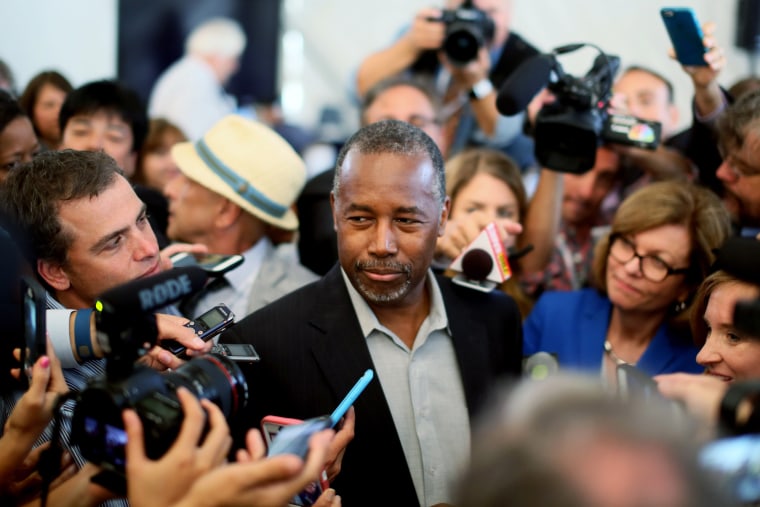After a debate that left little room for him to talk foreign policy, Dr. Ben Carson penned an op-ed aimed at upping his credibility on an issue that’s taking center stage in the GOP presidential primary.
“Just War Theory demands that any war be waged in such a manner as to make the war as short as possible and limit the suffering and destruction of innocent people," Carson wrote, arguing that President Obama's war on ISIS is slow and ineffective and, because of that, “immoral.”
RELATED: Political outsiders take center stage in second GOP debate
"The various phrases we have created, including 'surgical strikes,' 'measured force,' 'proportional response' and a myriad of other soft words and catchy phrases describe, in fact, the slow incineration of human beings," he said.
Carson argues that the U.S. should be arming the Kurds and helping them to achieve a state of their own, and advocates strongly for an information and propaganda war, likening it to the Cold War.
“I haven’t had an opportunity to weigh in on foreign policy,” Carson interjected near the end of Wednesday's debate. “I just want to mention that when the war, when the issue occurred in 2003, I suggested to President Bush that he not go to war. Okay? I just want that on the record.”
The 14 other Republican presidential hopefuls had spent the night sparring over how many troops they’d send to Iraq and whether they’d tear up the Iran nuclear agreement or try and work with it. But as one of the three candidates who has not previously held elected office, Carson will need to prove his chops on foreign policy.
Days earlier, Donald Trump stumbled in a widely criticized interview about the Middle East with conservative radio host Hugh Hewitt. (In March, Carson stumbled in his own interview with Hewitt, misstating which countries are members of NATO.)
In Wednesday's debate, Carson voiced a common conservative talking point – one his opponent Jeb Bush championed a few podiums down. Both blamed the rise of jihadism on the U.S. withdrawal from Iraq. Before being cut off by CNN debate moderator Jake Tapper, Carson said the U.S. should “use every resource available to destroy” global jihadists before they destroy the U.S.
While many of Carson’s stances are conventional conservative talking points voiced by others in the party, the op-ed signals that unlike Trump -- who has largely shied from offering policy details -- Carson wants to dive in.
"We’d love to be getting more foreign policy questions," Deputy Campaign Manager Ed Brookover told MSNBC in the spin room after the debate. "The other thing I think that's overlooked on his foreign policy side is that he's visited 57 countries! You say how do you get foreign policy chops? Well, travel!"
